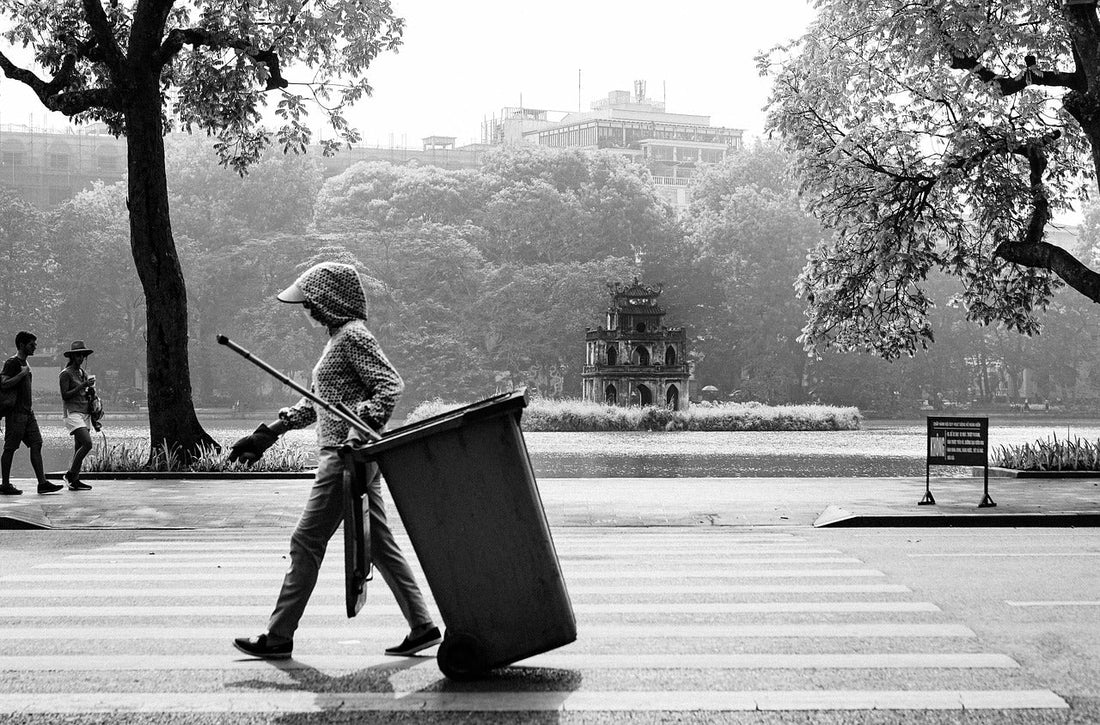
The Plastic Waste Distraction: Are We Missing the Bigger Picture?
Share
At Soapyard, our commitment to sustainability drives us to produce zero-waste bar soaps, eliminating the need for plastic packaging. However, recent developments in waste management policies, such as those in Bristol, highlight a concerning trend: the increasing burden placed on consumers to manage waste, while systemic issues remain unaddressed.
Bristol's Waste Management Dilemma
Bristol City Council is considering reducing black bin collections to once every three or four weeks, aiming to save between £1.3 million and £2.3 million annually. This proposal has sparked significant concern among residents, who fear that less frequent collections will lead to overflowing bins, unpleasant odors, and increased pest activity. A petition opposing the plan has already gathered over 4,000 signatures.
While the council emphasizes the importance of recycling—highlighting that recyclable food waste constitutes a quarter of the city's household rubbish—residents are questioning the practicality of these changes. The focus seems to be on managing waste after it's created rather than addressing the root cause: the overproduction of plastic and non-recyclable materials.
In cities like Glasgow, inadequate waste management has led to a surge in rat populations, with nearly 10,000 sightings reported in 2024 alone. In contrast, Singapore's stringent waste collection and sanitation practices have effectively controlled rodent populations. At Soapyard, we believe that reducing waste at the source is crucial for sustainable living. Our zero-waste bar soaps eliminate plastic packaging, helping to minimize waste and its associated problems.
SEO-Optimized Keywords & Phrases:
The Overlooked Issue: Plastic Production
The core problem lies in the continuous production of single-use plastics and excessive packaging by manufacturers and retailers. While consumers are encouraged to recycle, the reality is that a significant portion of plastic waste is not recyclable and ends up in landfills or incinerators. This approach places the onus on individuals to manage waste, diverting attention from the need for systemic change in production and packaging practices.
Soapyard's Commitment to Zero Waste
At Soapyard, we believe that true sustainability starts with reducing waste at the source. Our zero-waste bar soaps are designed to minimize environmental impact by eliminating plastic packaging and utilizing natural, biodegradable ingredients. By choosing products that prioritize sustainability, consumers can make a meaningful difference without compromising on quality.
Moving Forward: Systemic Change Needed
While individual actions are important, addressing the waste crisis requires systemic change. This includes implementing policies that hold producers accountable for the environmental impact of their products, encouraging the development of sustainable packaging alternatives, and investing in infrastructure that supports effective waste reduction and recycling.
By shifting the focus from consumer responsibility to corporate accountability, we can work towards a more sustainable future where waste is minimized, and the health of our communities and environment is prioritized.
-
Grim video shows piles of rubbish bags dumped in Glasgow housing estate after bin collections scrapped for six weeks. The Scottish Sun
-
Council cuts blamed for surge in Glasgow rat sightings The Times
-
Our Glasgow street is infested with giant foot-long RATS - I've lived all over Europe but this is the worst
For more insights into sustainable living and zero-waste products, visit Soapyard.
- Zero-waste bar soap
- Sustainable soap brand
- Plastic-free soap
- Reduce plastic waste
- Waste management crisis UK
- Bristol bin collection changes
- Green living tips
- Eco-friendly alternatives
- Sustainable packaging solutions
- Plastic pollution solutions
